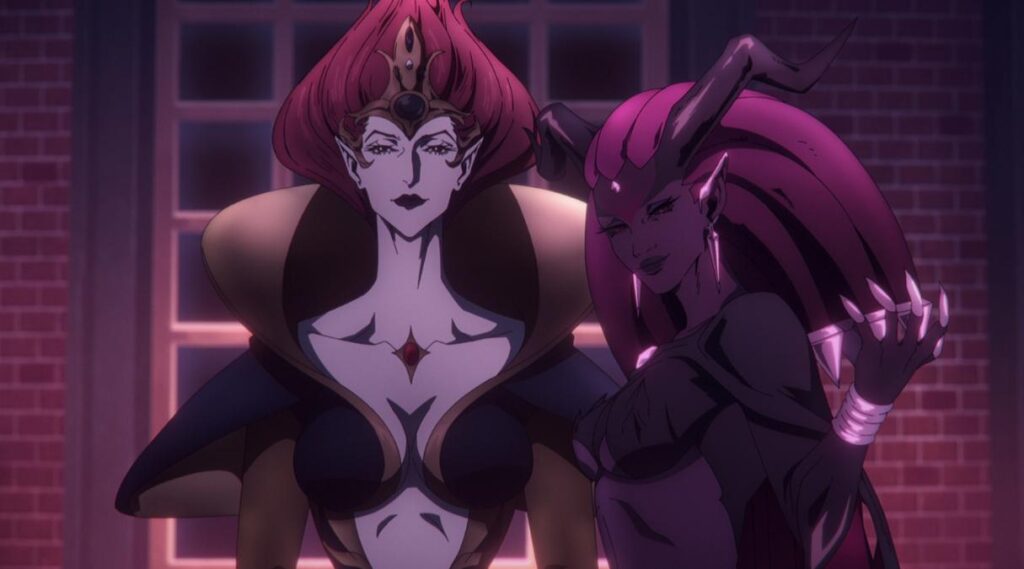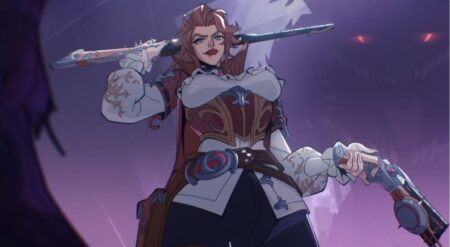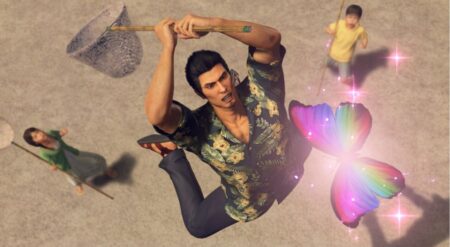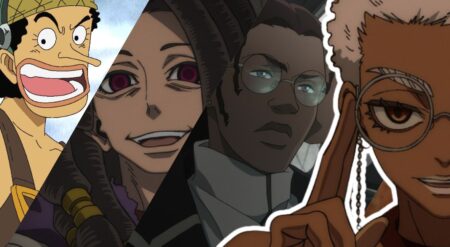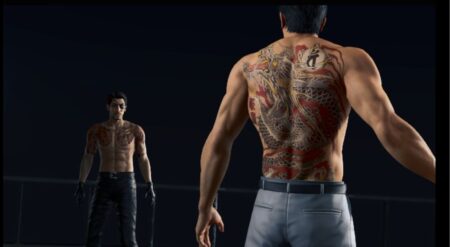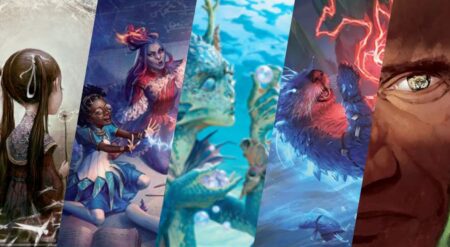Castlevania Nocturne Season 2 makes an epic return with another thrilling story and exploration of themes. Throughout the Castlevania series, the metaphor of the knife symbolizes the struggle between power and agency. The metaphor of the knife was most poignantly embodied through Isaac, a character from the original series whose journey is a powerful story of growth and evolution within the animated series.
Early in his arc, Isaac viewed himself as a tool, specifically a knife wielded by others to exact their ambitions. His loyalty to Dracula was rooted in this belief, as he thought his purpose was defined solely by service to his master. However, Isaac’s transformative realization that he held the knife and could shape his own destiny was a profound moment of self-actualization. This epiphany reframed his existence, allowing him to move beyond vengeance and embrace creation as a path to agency.
The foundational themes of power and agency continue to resonate throughout Castlevania Nocturne Season 2, weaving through this season’s characters and their conflicts.
This article contains spoilers for Castlevania: Nocturne Season 2 (Erzsebet, Drolta, Olrox, and Mizrak storylines)
The Knife, Erzsebet & Drolta
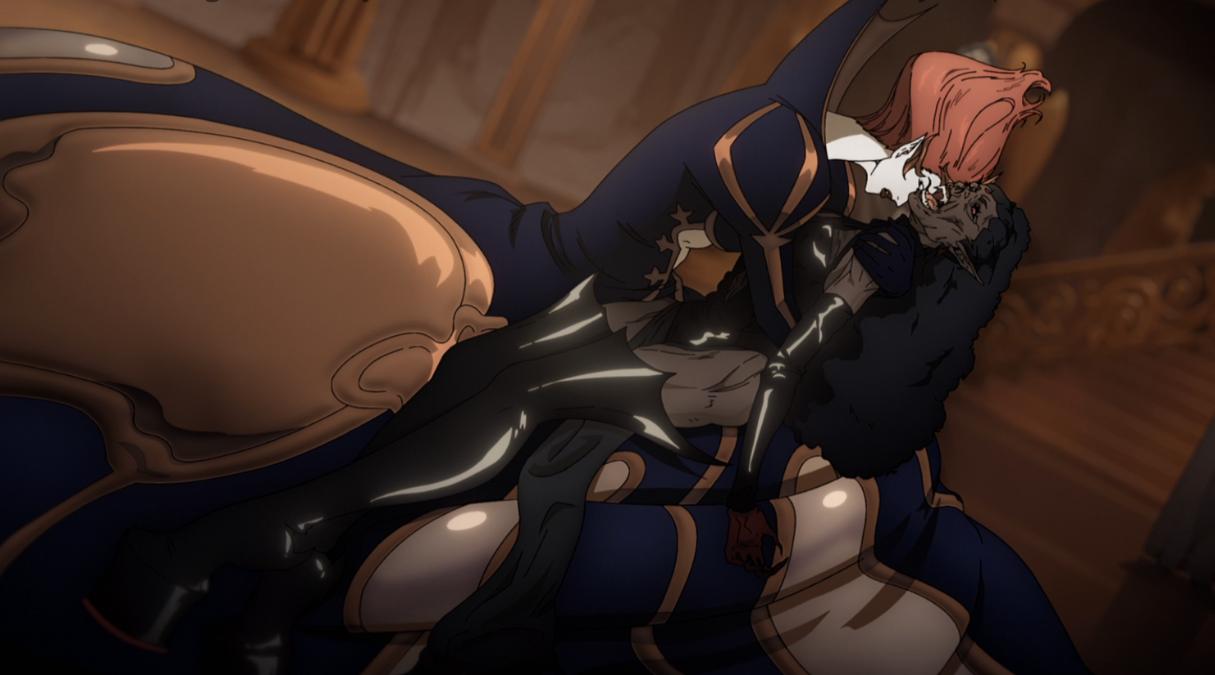
In Castlevania Nocturne Season 2, Erzsebet (Franka Potente) declares, “I am the one who wields the knife,” which underscores her belief in her supremacy and agency. She believes in herself as the architect of destiny due to her growing power and closer ascension to godhood. Yet, her power and control are revealed to be fragile when her most loyal servant, Drolta (Elarica Johnson), seizes power from Erzsebet in a shocking twist.
Drolta’s betrayal is not just a subversion of power. It is a calculated masterpiece of manipulation. Long before she met Erzsebet, Drolta took fate into her own hands by drinking the blood of a vampire to transform herself into one. Drolta turned Erzsebet into a vampire and elevated her power as a means to an end of her own goal to obtain Sekhmet’s power for herself.
That betrayal and revelation reframes both characters and their relationship. Drolta was never the knife or servant acting solely under Erzsebet’s command. Instead, she was the true wielder of the knife, quietly manipulating Erzsebet to serve and do her bidding.
Drolta’s betrayal destroys Erzsebet’s preconceived dominance and shows that power is as much about perception as it is about control. Ultimately, Erzsebet and Drolta’s relationship is a reminder that even those who claim to wield the knife can be controlled in the end too.
Olrox Taking Mizrak’s Decision
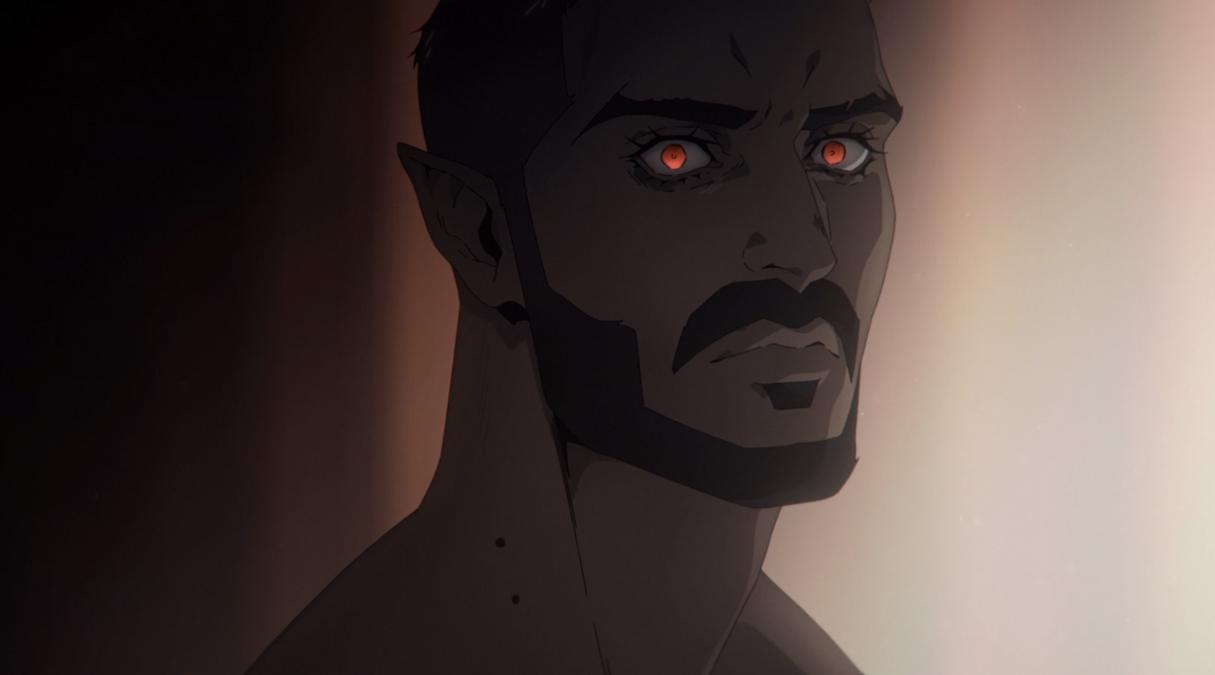
Another poignant exploration of power and agency comes through the relationship between Olrox and his human lover, Mizrak. In the first season, Olrox (Zahn McClarnon) and Mizrak (Aaron Neil) become very intimate with one another despite being from separate worlds and holding different values. Although they may not always agree with one another, it is evident that they care and love deeply for one another.
Throughout the series, Olrox’s protectiveness and feelings towards Mizrak are evident. On multiple occasions, he intervenes to save Mizrak’s life, most likely driven by his fear of repeating past mistakes. Long ago, Olrox once lost a great love because he was unable to turn them before their untimely death, a loss that left him with profound regret and grief.
However, in the season finale, Mizrak is mortally wounded and on the brink of death. In a desperate act to save him, Olrox turns Mizrak into a vampire. A decision that is deeply rooted in Olrox’s regrets from his past and his love for Mizrak. By turning Mizrak, Olrox took Mizrak’s choice to become a vampire into his own hands.
When he was alive, Mizrak was always prepared to die for his morals and the causes he believed in as a mortal. Granted, at this point, it is not clear if Mizrak will appreciate or understand Olrox’s decision to turn him into a vampire. However, it will be interesting to see how Olrox’s actions affect their relationship dynamic going forward.
The Enigmatic Mephistopheles
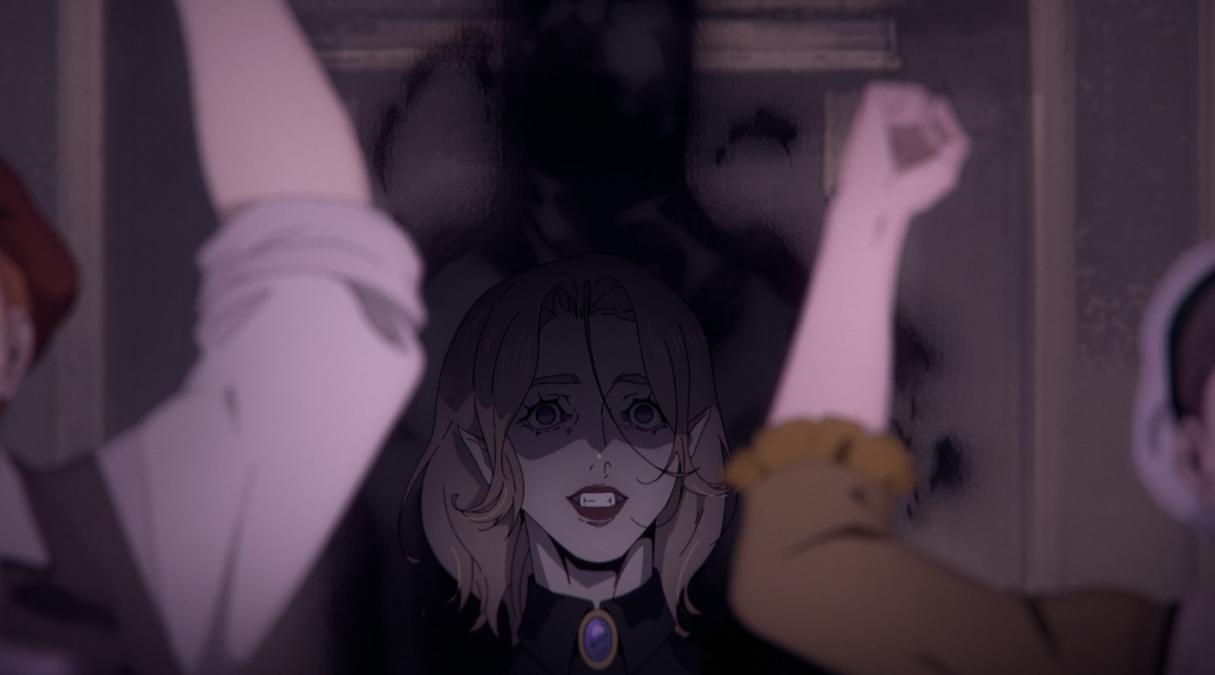
Mephistopheles, or “Old Man Coyote,” as Olrox refers to the figure, is a new insidious addition to Castlevania Nocturne. The shadowy figure makes a few key appearances throughout the season, most notably when it comes time to claim the Forgemaster Abbot’s body and soul after Maria kills him.
Mephistopheles’ manipulative influence is evident in the Abbot’s misguided use of dark magic and in the subtle ways he exploits Tera (Nastassja Kinski) and Maria (Pixie Davies). The mysterious figure, Mephistopheles, thrives on darkness and chaos and uses mortals as pawns in his sinister work. Terra and Maria were prime targets for Mephistopheles to influence this season because of their shared grief, anger, and thirst for vengeance.
In Castlevania Nocturne Season 2, Mephistopheles preyed on Terra and Maria’s emotions and ambitions to blur the lines between their autonomous decisions and his calculated manipulation. Although Maria was able to cleanse herself of the darkness, the final moments of the season strongly suggest that Mephistopheles will be the next major adversary.
The figure’s ability to exploit humans at their lowest and most vulnerable moments positions him as a particularly terrifying force. Especially given that the world, as our characters know, is vastly changing, and that change is driven by plenty of emotions and ambitions.
Power Dynamics Subverted
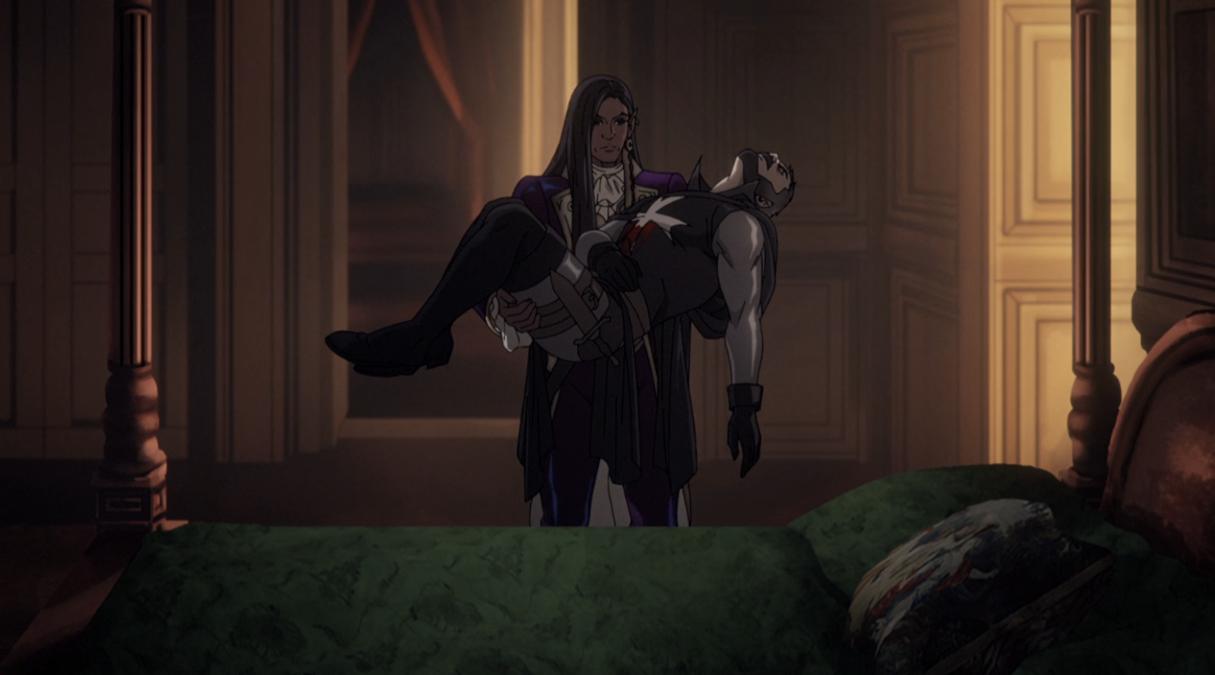
The interplay between Erzsebet and Drolta, Olrox and Mizrak, and the enigmatic figure of Mephistopheles demonstrates the complexities of power in Castlevania Nocturne. Each character’s journey highlights the fragile, shifting nature of control. Drolta’s betrayal, Olrox’s act of love, and Mephisto’s manipulations demonstrate that power is not inherently stable or absolute. It is constantly in flux, shaped by perception, intent, and action.
Isaac’s journey in Castlevania and the events of Castlevania Nocturne emphasize that power and agency are not merely about taking control. Isaac’s path toward constructive autonomy contrasts sharply with Drolta’s destructive pursuit of power, while Olrox’s act of love reveals the vulnerability inherent in seeking to protect his love through control. Meanwhile, Mephistopheles is a dark reminder of the dangers of unchecked power and how easily free will can be manipulated.
By revisiting and expanding on themes of power and agency, Castlevania Nocturne Season 2 continues the franchise’s tradition of exploring human nature through dark fantasy. The season’s intricate character arcs invite viewers to question who truly wields power and what it means to wield it. Whether through love, betrayal, or manipulation, the series shows that the knife and its power are always in someone’s hands. The real question is: who will wield it, and to what end?
Castlevania Season 2 is now streaming exclusively on Netflix.
Castlevania – Season 1 | Season 2 | Season 3 | Season 4
Castlevania: Nocturne – Season 1 | Season 2

